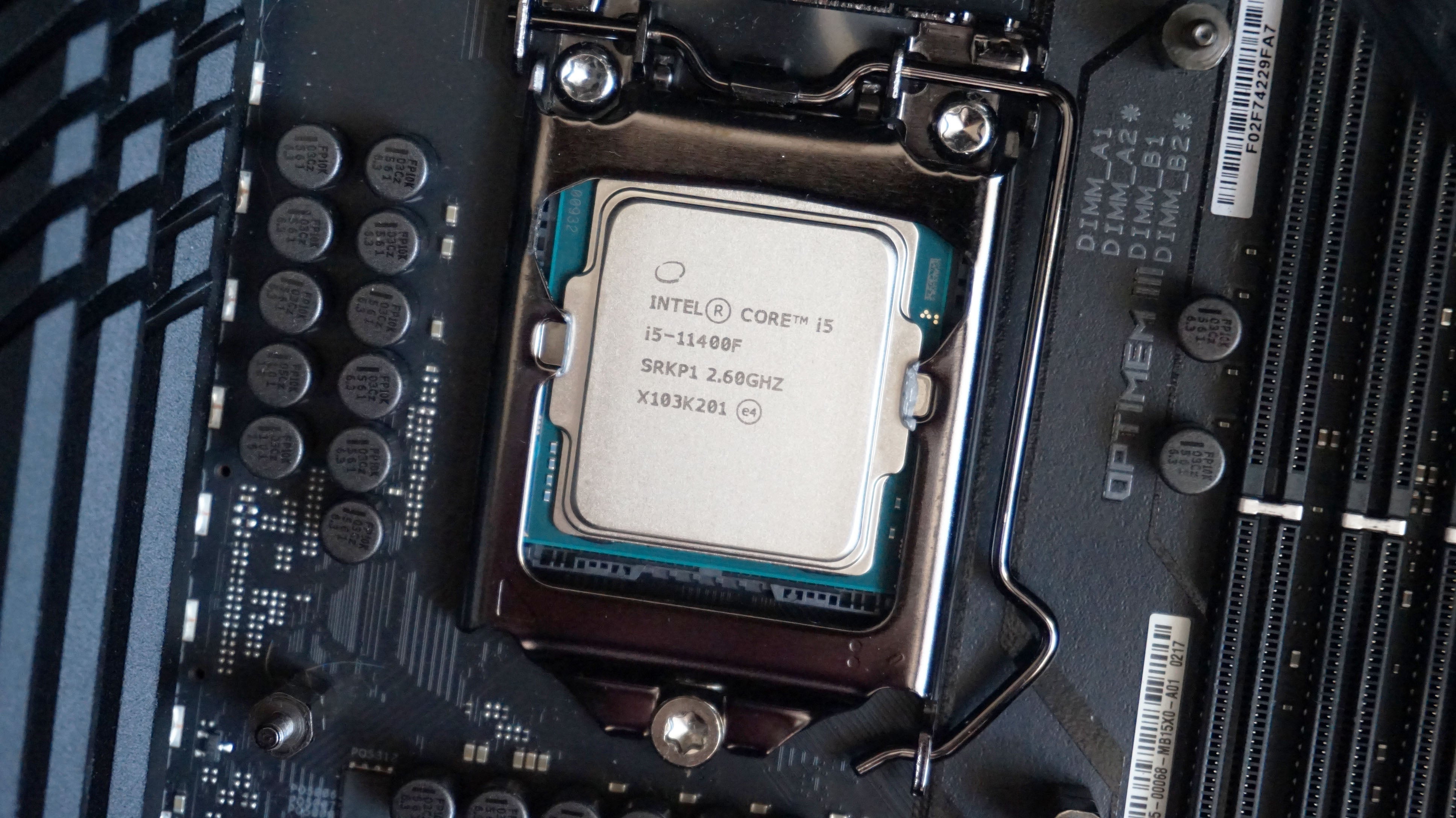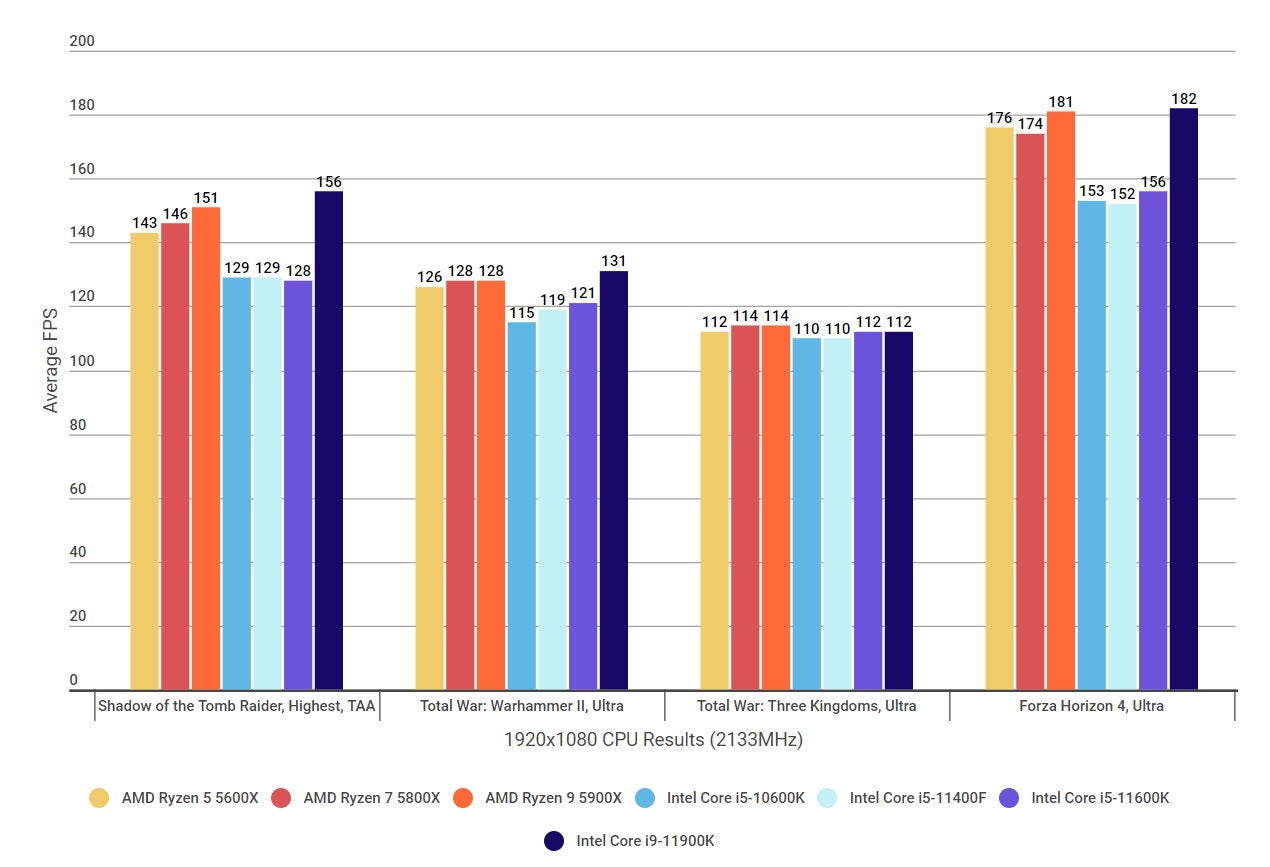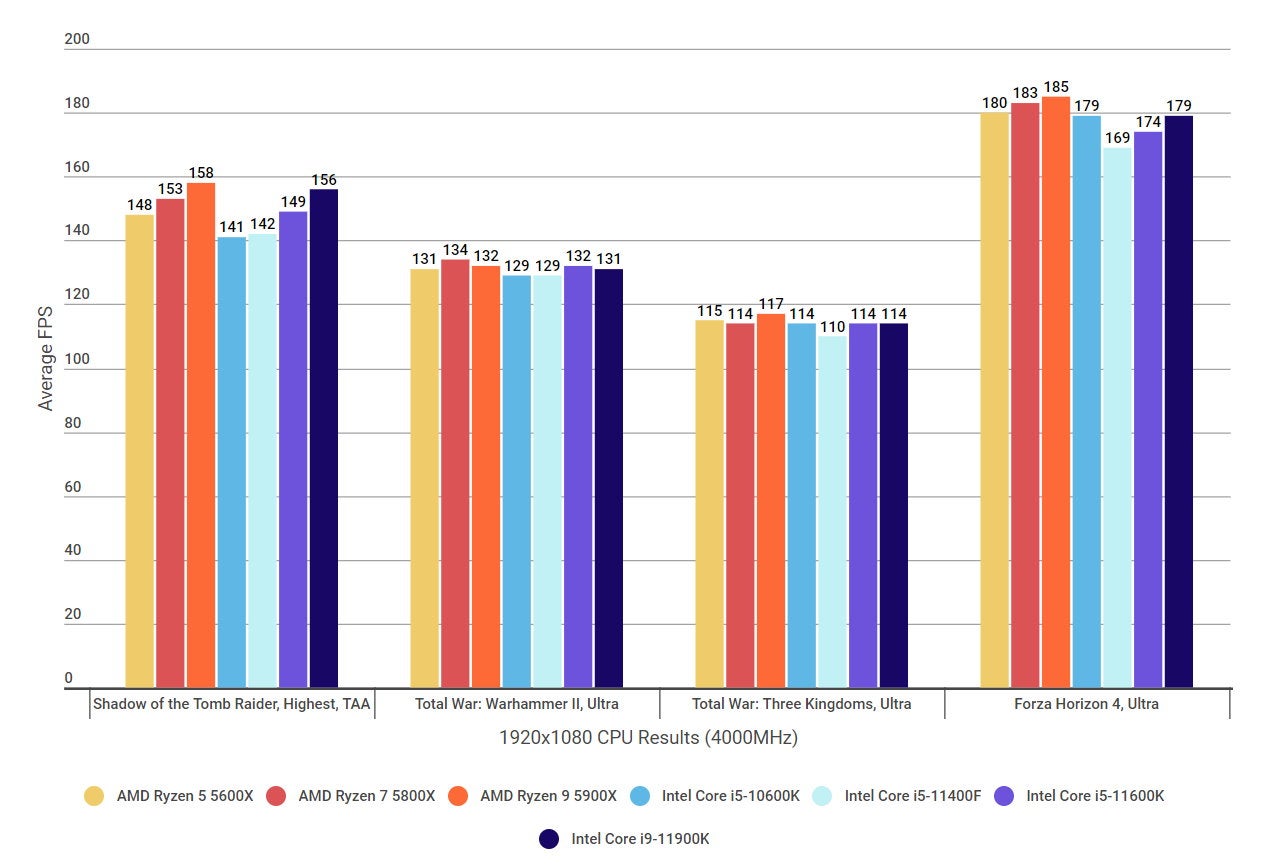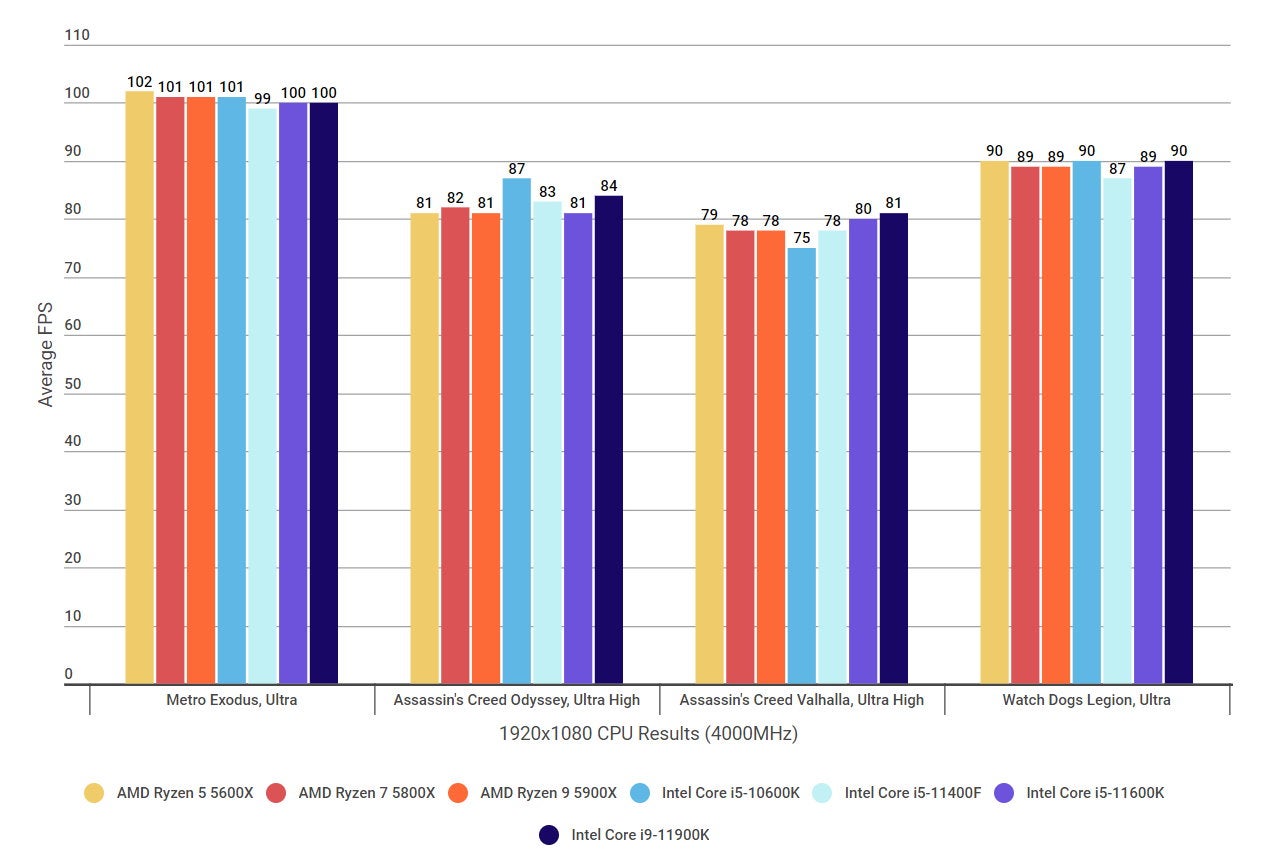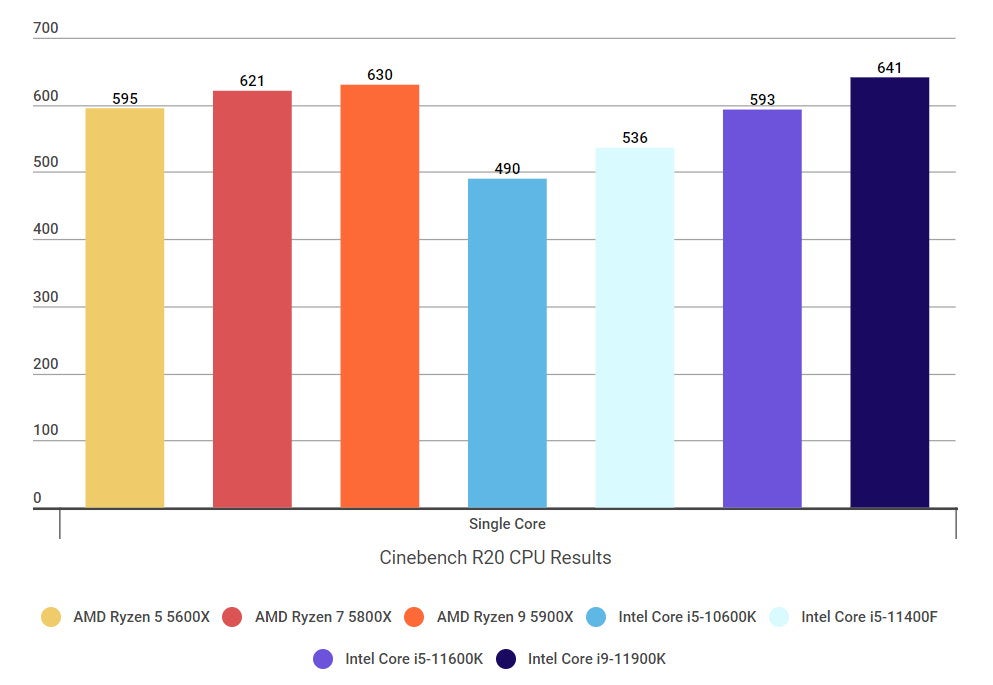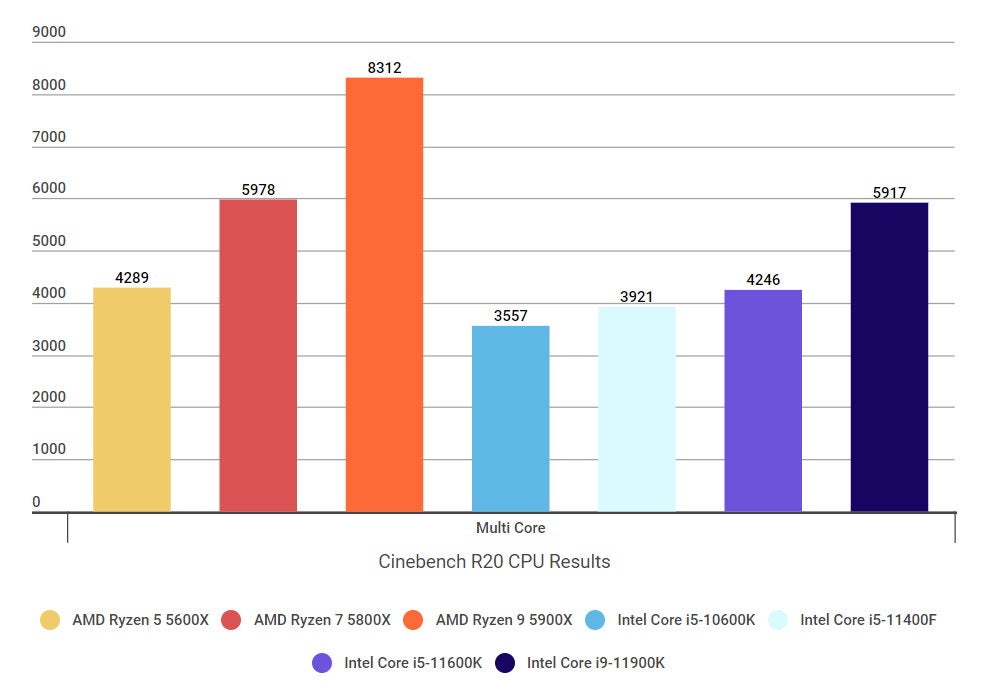The Core i5-11400F is fundamentally identical to the 11400 - it’s just that the F model doesn’t have any integrated graphics built-in. As such, you’ll need to pair it with a graphics card if you want anything to appear on your monitor when you come to turn it on. Otherwise, they’re exactly the same chip. And for lack of any other competition right now, this £150 / $230 CPU is probably the closest thing you’ll get to a great budget gaming CPU in 2021. While not quite as powerful as Intel’s top 11th Gen Core i5 - the Core i5-11600K - the 11400F still gets you 6 cores and 12 threads, and a top clock speed of 4.4GHz. That’s just 500MHz shy of the 11600K, and 200MHz shy of its nearest AMD rival, the Ryzen 5 5600X. Its base clock speed is a bit more pedestrian, starting a modest 2.6GHz versus the respective 3.9GHz and 3.7GHz speeds of its aforementioned stablemates, but the 11400F still comes with some important benefits. Not only is it quite a bit cheaper than the i5-11600K and AMD’s 5600X (both of which will currently set you back at least £250 / $300 at the moment), but it’s also a lot more power efficient than its i5-11600K sibling, with a TDP of just 65W versus the 11600K’s 125W TDP. It also comes with a cooler in the box, helping you to keep costs down even further. In all likelihood, you will still need to buy a new motherboard before you can start using the Core i5-11400F, as its LGA 1200 socket means it’s only compatible with Intel’s 400 and 500 series of motherboard chipsets. For budget-oriented builders, the best match for this CPU would probably be either the B560 or H570 chipset - especially if you want to take advantage of this CPU’s all-important PCIe 4.0 support for SSDs and the like. Plus, thanks to Intel’s more extensive support for memory overclocking this time round, you can still take advantage of your RAM’s XMP profiles on B560 and H570 boards, allowing you to squeeze even more performance out of your system. Of course, the lack of that all-important K moniker on the end of the 11400F’s name means you won’t be able to overclock the CPU itself to get even nippier gaming speeds, but if all you want is a fast and capable gaming CPU you can just stick straight in your PC and not have to worry about endlessly tweaking it to get the best from it, the 11400F is well worth considering. Indeed, when it comes to gaming speeds, the Core i5-11400F was nigh-on indistinguishable from its 11600K sibling in my CPU gaming benchmarks when paired with my RTX 2080 Ti, both at my RAM’s base speed of 2133MHz and my Corsair Vengeance RGB Pro’s top XMP speed of 4000MHz. I’m still in the middle of re-testing all my CPUs with Nvidia’s more powerful RTX 3080 at the moment, but since all RTX 30 cards are still widely unavailable at this point, I felt my stalwart RTX 2080 Ti would give a more accurate picture of what’s currently possible with this particular processor for the purposes of this review. As you can see from the graphs below, its 1080p speeds are right up there with the Core i5-11600K in most cases, and it’s mostly on par with Intel’s previous gen Core i5-10600K as well. AMD’s Ryzen 5 5600X still has the edge in a lot of games in my testing suite, but it is, of course, that much more expensive. I saw similar results when I bumped up my RAM speed to 4000MHz by enabling its XMP profile in my motherboard’s BIOS settings, too. The Core i5-11600K and Ryzen 5 5600X are still ahead overall, but not by much. All in all, a very satisfactory set of results considering the Core i5-11400F’s lower price. Further up the resolution scale, the gap gets even narrower, with the Core i5-11400F, Core i5-11600K and Ryzen 5 5600X all posting nigh-on identical speeds across the board. This is because you’re still GPU limited at 2560x1440 and 4K, meaning your processor makes surprisingly little difference to your PC’s overall gaming speeds. Instead, it’s only really at 1920x1080 or below where you’ll really feel the benefit of a faster processor - although as you can see, even Intel and AMD’s flagship processors aren’t actually getting you that many more frames in the grand scheme of things. Instead, the benefits of those faster processors are only really felt in everyday desktop tasks. For example, if you regularly use your PC for things like video and photo editing or streaming as well as playing games, you’re probably better off spending the extra money and getting something a bit more powerful - as you can see in my Cinebench R20 benchmarks below. This application measures how quickly your PC can render out a complex image, and is a pretty good indicator of how long your PC will take to complete CPU-intensive tasks like this. In truth, the Core i5-11400F still puts in a pretty good performance here all things considered. With all results recorded at a RAM speed of 4000MHz, the more expensive Core i5-11600K and Ryzen 5 5600X are only an average of about 10-11% faster than the Core i5-11440F, and that’s in both single and multicore tasks alike. Considering the 11400F’s lower price, that’s a more than acceptable performance gap in my books, especially if all you use your PC for outside of gaming is web browsing and light office work like compiling word documents and spreadsheets and the like. All in all, then, Intel’s Core i5-11400F is a pretty great budget CPU in the grand scheme of things. It not only offers comparable gaming speeds to its more expensive competitors at a lower TDP, but its everyday desktop performance is pretty great as well. It also supports all the modern bits of PC tech you need right now, too, including PCIe 4.0 SSDs and graphics cards, and memory overclocking, making it a great foundation for any modern gaming PC. That said, it’s worth noting that Intel’s 12th Gen Alder Lake CPUs will soon be here at the end of the year, so you may want to wait a bit longer to see whether you can get anything better closer to Christmas. There’s still a lot we don’t know about Alder Lake at the moment, but all current information points towards them being a lot more powerful than Intel’s 11th Gen Rocket Lake chips, as they’ll not only be using Intel’s new enhanced 10nm SuperFin technology, but also a new hybrid core architecture as well. They’ll also be using another new LGA socket, too, which means anyone buying into Rocket Lake now will definitely have to buy yet another new motherboard the next time they come to upgrade (although given how long we tend to keep our CPUs versus our graphics cards, for example, this will probably be the case for most people building new PCs at the moment). As such, if you want to make sure you’ve got the latest and greatest inside your PC, you’re probably better off waiting until Alder Lake arrives at the end of the year - or at least until we know more about what kind of processors we’ll actually be getting in Alder Lake, as its focus on high performance means that budget-focused chips like the i5-11400F here might be in short supply. It’s just too early to tell right now. For those in need of a new CPU right this second, however, the Core i5-11400F is hands down the best value CPU for gaming around right now, and it gets our firm seal of approval.
